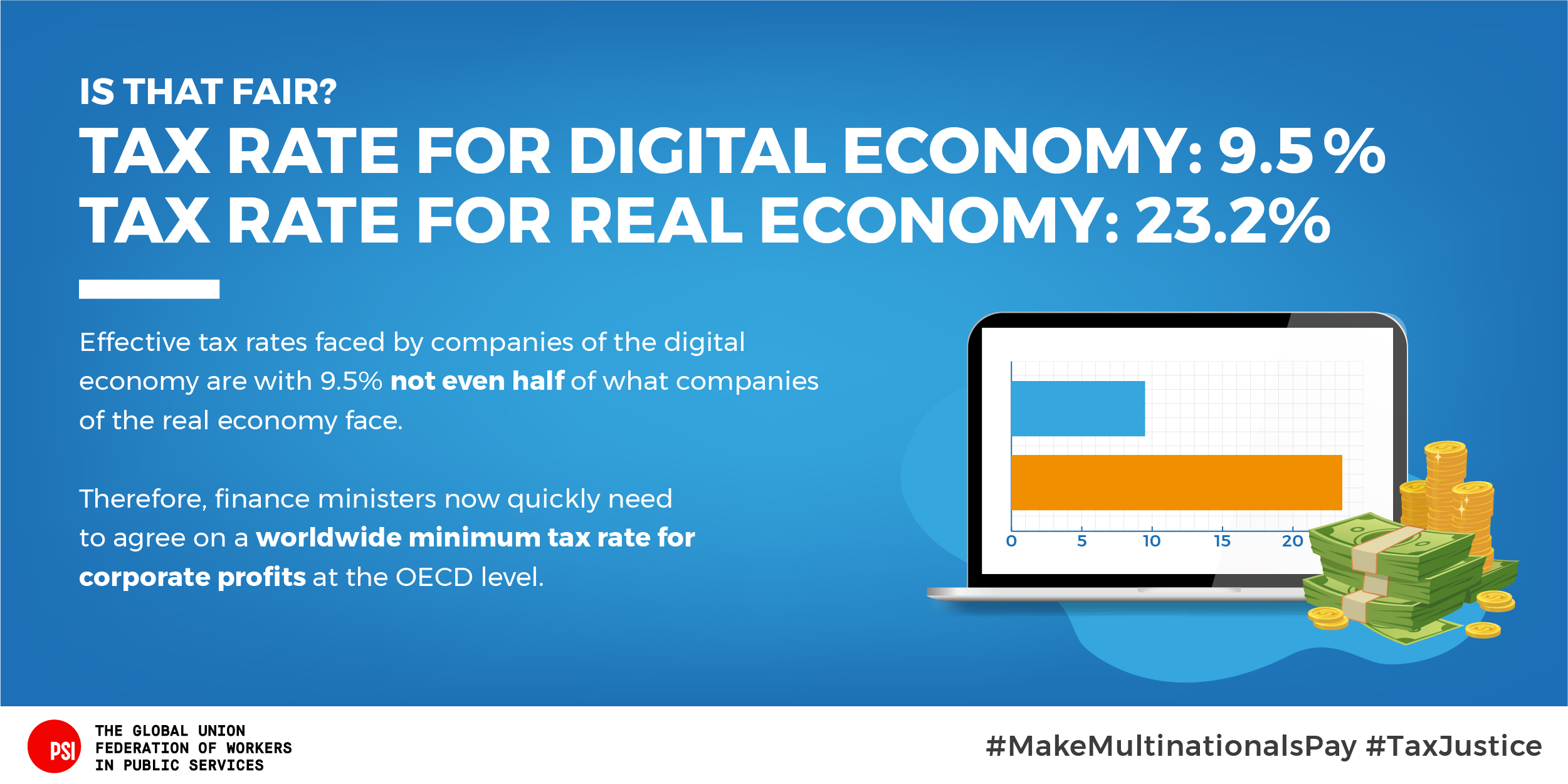#MakeMultinationalsPay #MakeMultinationalsPay - New Campaign

The following materials comes directly from Arbeiterkammer's campaign and are available for adoption for your own campaigning and contexts:
Large corporations, low taxes – it is time for change
Multinational corporations are not paying their fair share of corporate taxes yet, but with the current OECD project, chances for change are better than ever. To make use of this historical opportunity, ministers of finance of the OECD member countries must find mutual consent on minimum tax rates for corporations.
Our demands
A minimum effective corporate tax rate on a global scale
Common guidelines stated by the OECD for determining minimum tax rates
The implementation of the “Public Country by Country Reporting” so corporate taxation becomes transparent
The reasons for our demands
The tax burden of multinationals is decreasing!
International corporate taxation regulations are outdated. Some EU-countries still engage in a race to the bottom by trying to attract corporations with low taxes. Coincidentally, tax avoidance strategies used by corporations are getting more aggressive.
These problems have been well known for decades, but thus far have been ignored by politics, until now. Nevertheless, we now know that:
Multinational corporations pay 30% less corporate tax on average than local companies
The tax burden of the digital economy (9.5%) is not even half the traditional economies’ tax burden (23.2%)
Multinationals are world champions in profit shifting. Almost 40% of annual profits are shifted into low tax countries and tax havens. Austria on its own loses a billion euro each year.
40% of global Foreign Direct Investments are sham investments, only serving as a disguise for tax avoidance.
Tax avoidance and the harmful race to the bottom led to global losses of $240 billion each year, which is about 10% of corporate tax revenue.
Low taxes for multinationals shift the tax burden to employees and local corporations, so they have to compensate the lost tax revenue.
COVID-19 makes matters worse
COVID-19 amplifies this imbalance: While global tax revenues nosedive in 2020, countries spend billions for bailouts and preventing a recession. Privatizing profits but socializing losses must be restricted during crises. Additionally, multinationals often benefit disproportionately due to their size and sometimes even from the crisis itself (e.g. e-commerce or streaming services).
The benefits of a minimum corporate tax rate
If an effective uniform tax rate for corporations in OECD-countries was introduced,
annual corporate tax revenues would increase by 4%, which corresponds to $100 billion of budgetary surplus each year.
additional revenues would be allocated approximately uniformly so that every country, except tax havens, profit.
profit shifting would be significantly constrained, and tax havens dried out efficiently
employees’ and local corporation’s tax burden could be reduced
Download the following images and share them on social media with the hashtag #MakeMultinationalsPay





